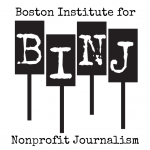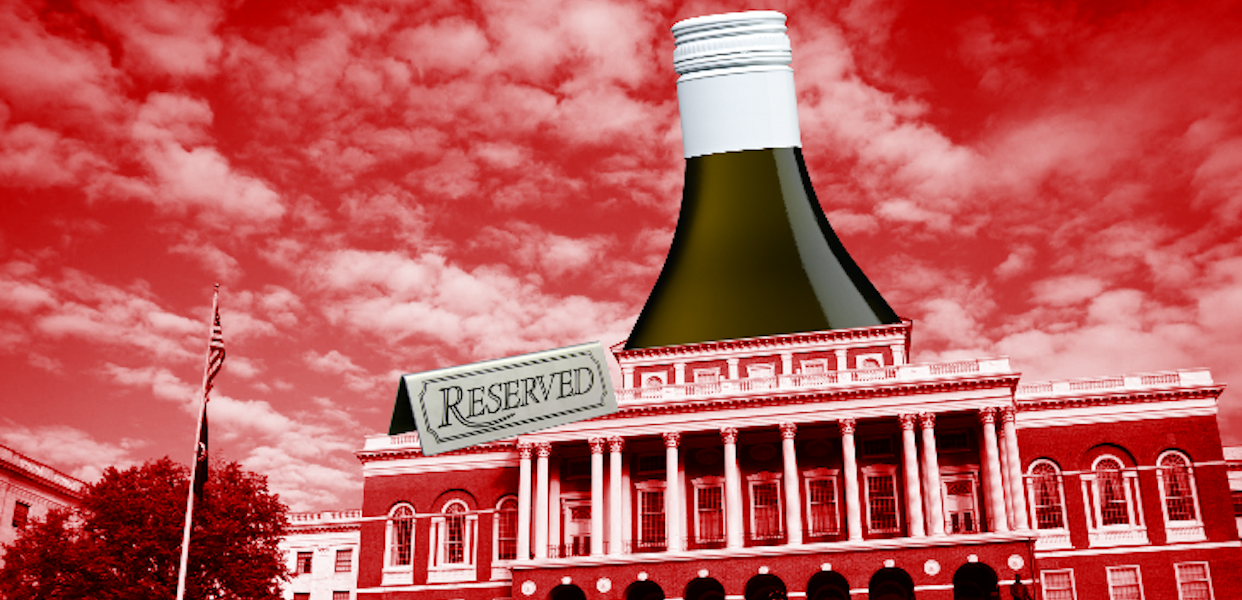After failed attempt by Boston to gain control over licenses, liquor laws still stuck in last century
Earlier this year, DigBoston and the Boston Institute for Nonprofit Journalism published a two–part feature, The Thirsty Games, investigating the Hub’s antiquated liquor license quota, and the confusion and disparity the limited number of licenses has caused.
The series laid out the sordid history that’s led to Roxbury having but a handful of wet establishments, while much wealthier neighborhoods like Back Bay have more than a hundred spots to imbibe. Also addressed in the articles was “An Act to Modernize Municipal Finance and Government,” proposed earlier this year by Gov. Charlie Baker. Among the wide-ranging items included in the omnibus bill was wording that would remove the state-appointed cap on liquor licenses, and allow municipal boards in all cities and towns to distribute permits and set limits. Except for the city of Boston.
Flanked by a supportive Boston City Council, Mayor Marty Walsh attempted to encourage legislators at the State House to amend Baker’s proposal to include Boston. With additional licenses the Walsh administration would make available, they argued, opportunities would come to neighborhoods like Hyde Park, Mattapan, and others that have been starved for nightlife. But after a pissing match with state representatives from Boston who are loath to surrender Commonwealth oversight, lawmakers on Beacon Hill put the transfer of liquor-licensing authority on ice, much to the dismay of Walsh and other city leaders.
Why does any of this matter? As explained by Erin Anderson and Malia Lazu of Epicenter Community, a nonprofit that advocates for disenfranchised neighborhoods and entrepreneurs, the liquor license application process is deeply flawed. The Roxbury-based Epicenter dispatches to every meeting of the Boston Licensing Board, and has assisted DigBoston and BINJ in the research and reporting of this ongoing story. Says Epicenter, if applicants can demonstrate a public need for an alcohol-serving establishment in a particular neighborhood, have met with community boards and held public hearings, and are able to garner community support, then they should be granted a stamp of approval. But because of the state-imposed cap on licenses within the Hub, an aspiring restaurateur can jump through bureaucratic hoops for months only to be denied “without prejudice,” which means their business passes muster but is out of luck because there are no licenses available. As Christopher Lin, co-owner of Seven Star Street Bistro in Roslindale, told BINJ, “It’s super frustrating to have all the support you need but getting a license can still be uncertain because of confusing laws.”
As The Thirsty Games explains in detail, in 2014 Boston City Councilor-at-Large Ayanna Pressley championed a bill that freed up 25 new licenses a year for three years (75 in total). In practice, a majority of those licenses were awarded, as called for by Pressley’s bill, to businesses in traditionally underserved neighborhoods. Which is progress, except for that the last 25 licenses will be released in September. After that the city’s back to square one, where a liquor license can sell for in excess of $350,000 on the open market, and where dining and nightlife entrepreneurs often take their business across the river to Cambridge and Somerville, neither of which is constrained by the state’s arbitrary cap. Meanwhile, 17 restaurants — from Jamaica Plain to East Boston — have been denied a license “without prejudice” by the licensing board in Boston since September 2014. In many cases, they were established local restaurants looking to expand their beverage program, but were denied because of a state-imposed cap from the 1930s.
This latest news from Beacon Hill is dispiriting, since what’s at stake is more than where Bostonians can grab a beer. A lifted cap would would benefit everyone who wants to experience a more diverse dining culture in all parts of Boston, starting with the small business owners who want something bigger, not just for themselves but for forgotten corners of the city.










